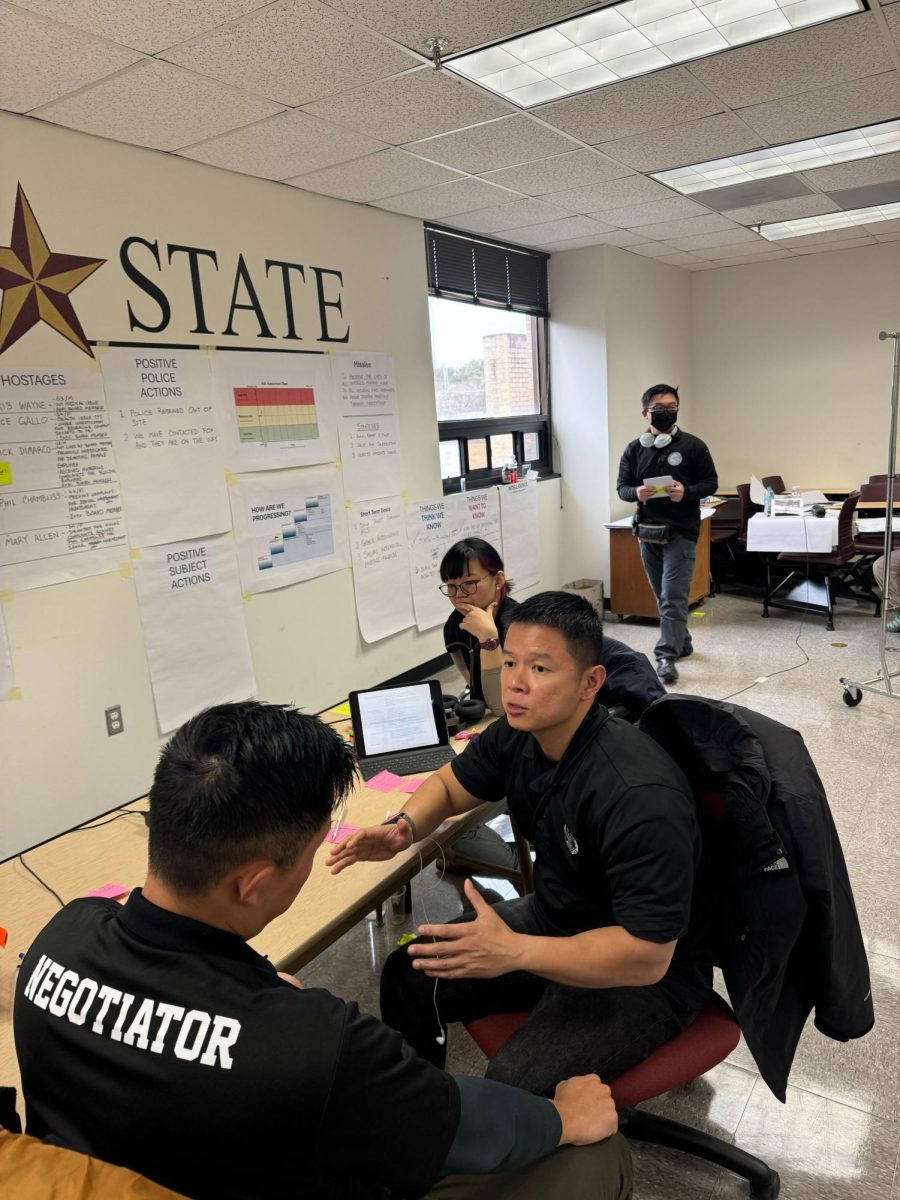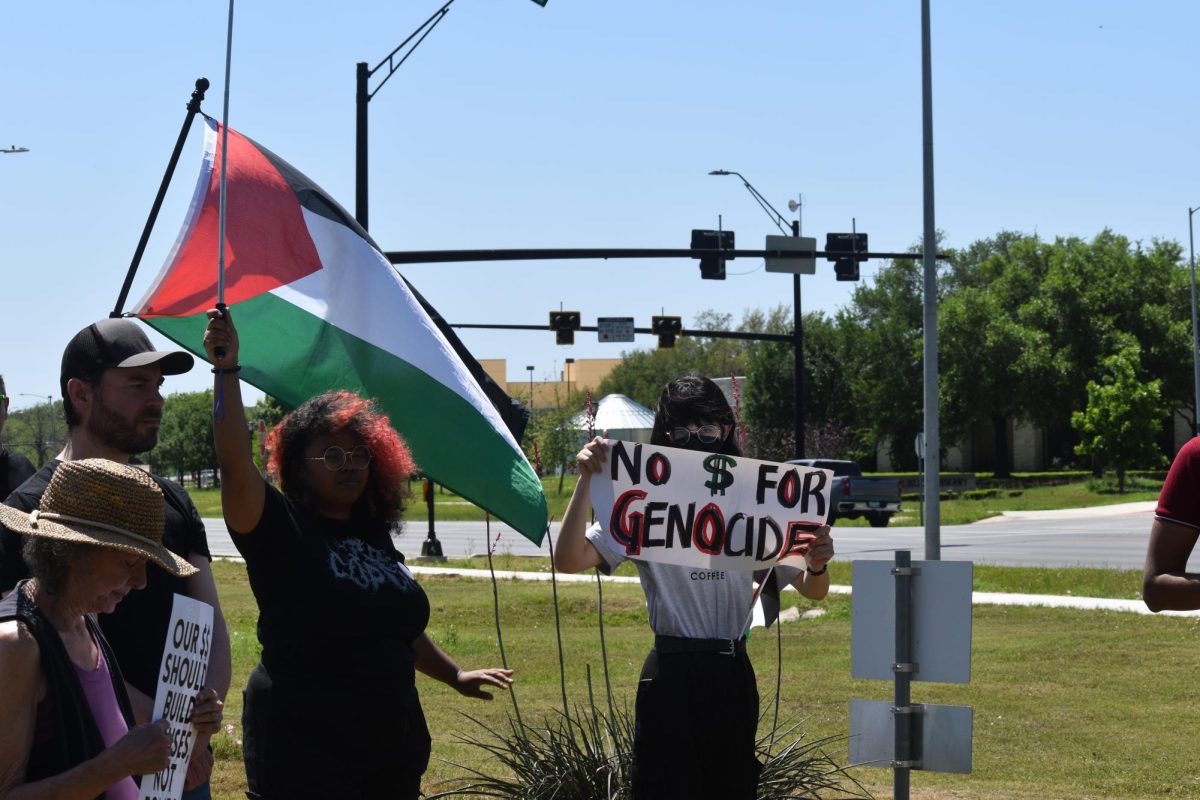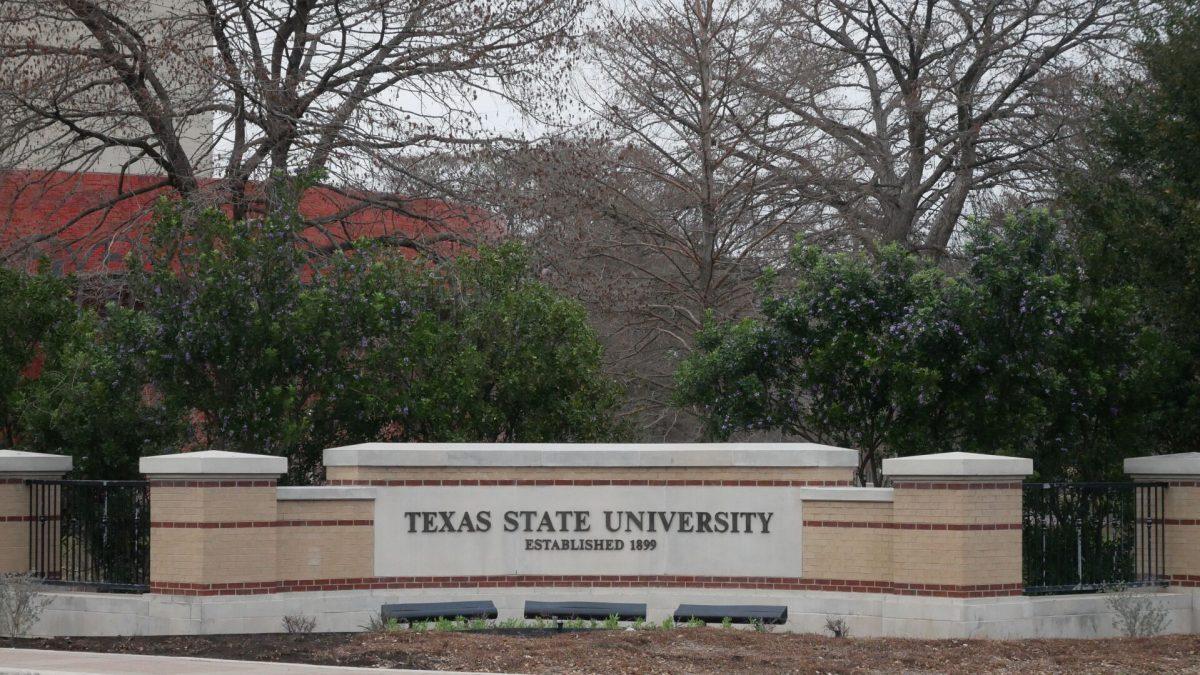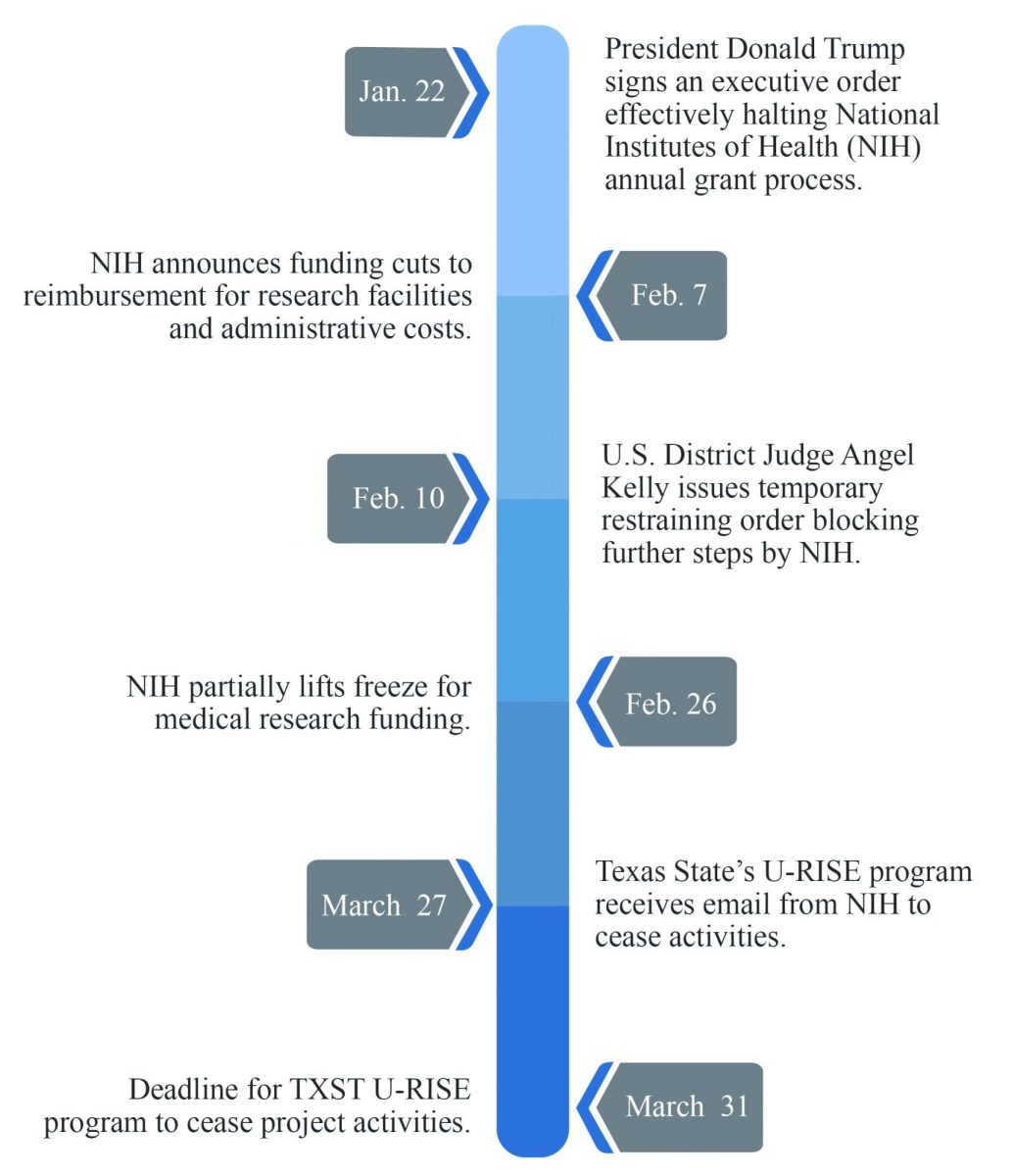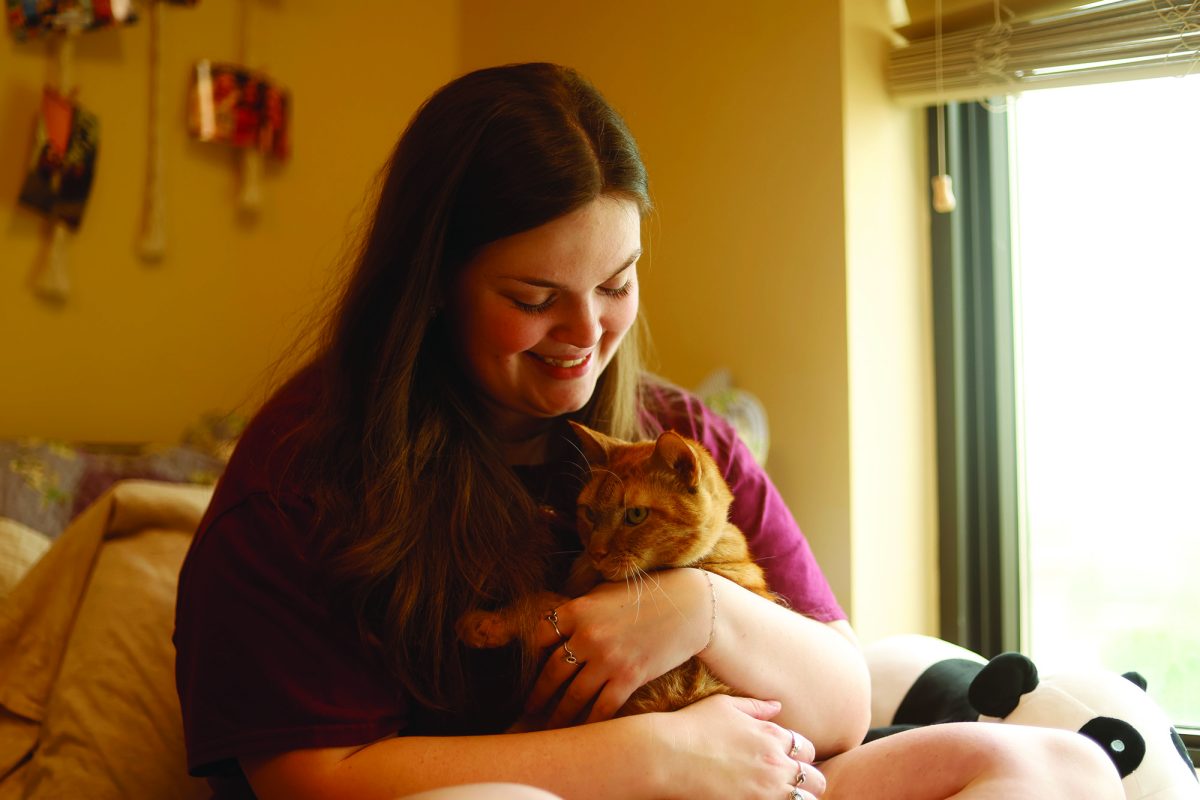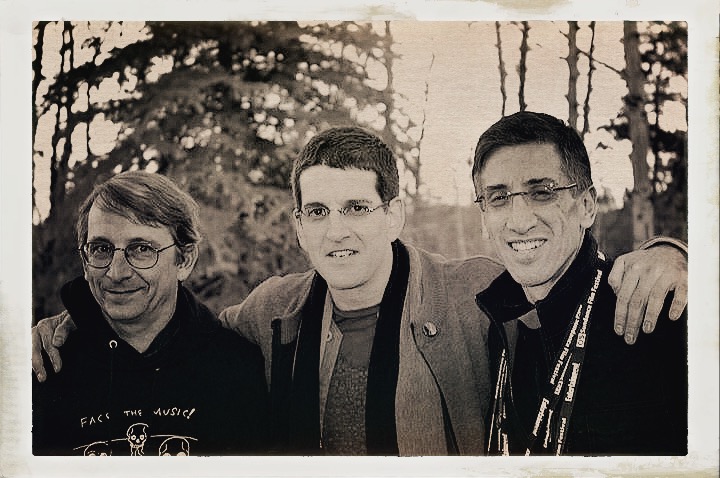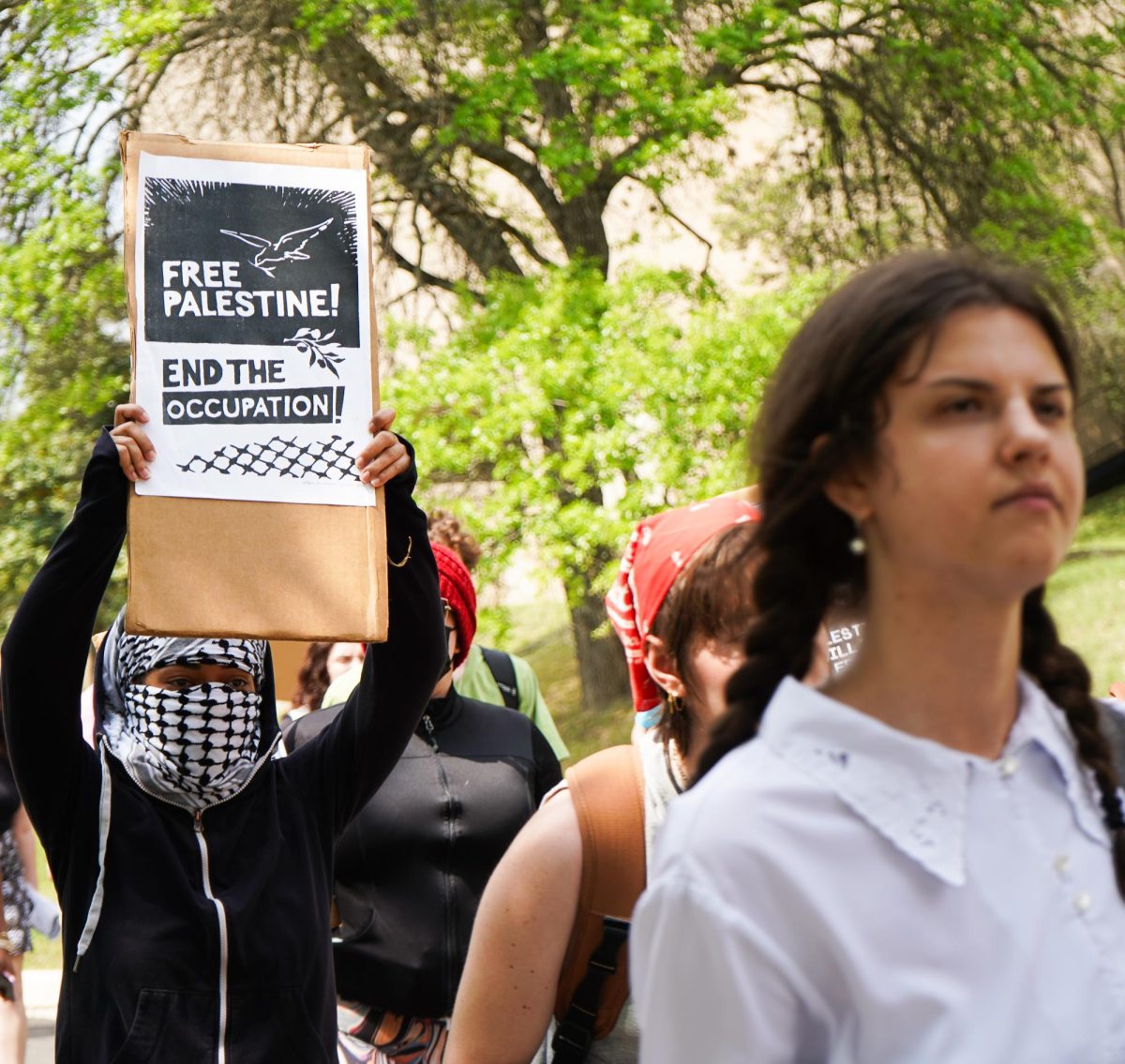Law enforcement officers from around the U.S. gathered at Texas State for the 34th Crisis Negotiation Competition and Seminar (CNCS).
The competition, held Jan. 7-9 at the Hines Academic building, brought together 34 hostage negotiation teams from law enforcement agencies across the U.S., including local police, state agencies like the Texas Department of Public Safety and federal organizations like the U.S. Naval Criminal Investigative Service.
Wayman Mullins, professor emeritus in the School of Criminal Justice and Criminology, is the founder and director of the competition. Mullins said the goal of the competition is to help hostage negotiation teams sharpen their skills.
“What we’re trying to do is improve [the officers] skill set when they go out to these situations and deal in the real world,” Mullins said. “The [judges] we bring in use a standardized assessment form. They provide a lot of written comments and they do a debrief with the teams at the end of the day.”
During the competition, each team sets up a room with specialized equipment used in actual hostage crises, including devices to connect their phones to the speaker system so that the entire team can listen to calls with the hostage-taker and boards to track real-time details.
This year’s mock crisis centers on a group of five healthcare executives being taken hostage by an individual with a long history of battling insurance companies for health coverage.
According to Mullins, once officers begin negotiating with a hostage-taker, they can prevent further violence 95% of the time.
Donald Lee, a competition judge and retired San Marcos Police Department (SMPD) officer, said the event provides advanced training to local agencies, such as SMPD and Hays County.
“The scenarios are a little bit twisted compared to what [SMPD] would see in real life,” Lee said. “All the basics of negotiating skills, negotiating practice, the teamwork within a negotiation team and the connection that a negotiation team with incident command and SWAT would have.”
Mullins launched the competition in 1990 with just two teams from the Austin and San Antonio police departments.
Mullins said part of the success of the competition is due to the support from Texas State.
“This is a major disruption to this school of criminal justice, we use [the entire Hines building],” Mullins said. “The administration works with us, they have contributed in numerous ways to what we do.”
Mullins said the competition provided networking opportunities for many student volunteers who played the role of hostage takers.
“There’s networking opportunities involved [in the competition], some of the students have gotten jobs out of this,” Mullins said. “They’ve made contacts that have helped them professionally in their future career.
The actors, who were mainly Texas State students, operated out of a temporary private call center in the Hines building. Each actor was assigned to a different negotiating team and was directed by CNCS staff throughout the competition.
Mac Mitch, criminal justice graduate student who played the role of hostage taker, said this was the first year she was able to be part of the competition.
“Our advisor sent out an email… but every time that I applied they were already full with everything, so this is the first year I’m doing it. It’s pretty fun [and] I’m really enjoying it,” Mitch said.
Violet Duran, criminal justice graduate student and CNCS actor, said the program was valuable for her education on criminal behavior.
“It’s from a behavior standpoint because we’ve been learning on the side of criminal justice how to attack these situations from their side,” Duran said. “This is our first time having to get into the mindset of people who are going to be doing bad things, which would help us as criminal justice actors in the future.”on



